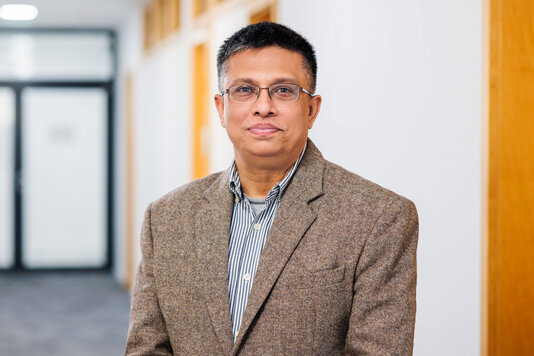
This project seeks to understand how countries contributing troops to United Nations peacekeeping operations engage with peacekeeping norms, including gender mainstreaming in human rights and domestic law. In the last decade, the United Nations (UN), through its guidelines, standards, and training requirements, has sought to promote compliance with these norms by peacekeepers deployed from various troop-contributing countries (TCCs) (Karlsrud / Oksamytna 2019; Holmes 2019).
Adherence to these norms by peacekeepers is central to regulating the conduct of peacekeepers on the ground, making UN peacekeeping compliant with UN resolutions, enhancing the legitimacy of peacekeeping, and even increasing their effectiveness in protecting civilians and maintaining peace. This normative activism of the UN to promote norms as a part of peacekeeping operations has seen a mixed record in practice, as evidenced by reports of peacekeepers engaged in human rights violations and sexual abuse (e.g., Uddin 2014; Hessebruegge 2022).
To understand the gap between the UN’s increased advocacy for such norms and the routine violation of these by peacekeepers in practice, the scholarly and policy focus has centred on monitoring compliance and practical adherence to these norms when troops are deployed in host countries or during UN peacekeeping missions. However, large-scale quantitative studies have demonstrated that compliance with peacekeeping norms during missions relies on political and military cultures and disciplinary mechanisms in security institutions of TCCs (Karim / Beardsley 2016; Moncrief 2017; Crawford et al. 2015; Rodriguez / Kinne 2019).
This project seeks to fill this gap by examining the internationalisation, contestation, and localisation of such norms by military institutions located domestically in TCCs, specifically through the emerging conceptualisation of global peacekeeping assemblages – where peacekeeping is envisioned beyond the narrower construct of the mission, its mandates, and isolated analytical country focal points of the field mission, host countries, and contributing states or organisations (Albrecht et al. 2024). As peacekeeping is gradually conceived as “the contingent co-functioning of heterogenous parts”, ethnographical sensitivity plays an important role (Albrecht et al. 2024, p. 901). Therefore, the project will use empirical evidence from two of the largest TCCs, Bangladesh and Nepal, to study peacekeeping norms in human rights through gender mainstreaming. The project will investigate:
• the mechanisms through which TCCs engage with peacekeeping norms on gender equality;
• challenges and incentives to comply with or resist these norms of gender mainstreaming;
• how violations of or deviations from these norms are handled.

Dr Rashed Uz Zaman
University of Dhaka (Bangladesh) | International Relations
Rashed Uz Zaman has been a lecturer and researcher at the Department of International Relations of the University of Dhaka, Bangladesh, since 1998. He holds a PhD in strategic studies from the University of Reading, UK. He was an Alexander von Humboldt postdoctoral research fellow at the University of Erfurt, Germany (2009–2011) and a Fulbright Visiting Scholar in the Department of Political Science at Vanderbilt University, USA, in 2012.
Rashed Uz Zaman works on strategic and international security issues and, in recent years, on civil-military relations in Bangladesh. Latest publications include an article titled ‘Defence Diplomacy and Civil-Military Relations in Bangladesh’ in the Journal of Political & Military Sociology (2024) and a chapter on ‘Defence Diplomacy and Civil-Military Relations: The Case of Bangladesh’ in the volume Asian Military Evolutions: Civil Military Relations in Asia (2023).
Rashed Uz Zaman speaks regularly at various international and national educational, defence and administrative institutions including the Defence Services Command & Staff College (DSCSC), the National Defence College (NDC), Bangladesh, the Tribhuvan University, Nepal, the National Defence College, Sri Lanka, the Foreign Service Academy of the Ministry of Foreign Affairs, Bangladesh, and the Public Administration Training Center (BPATC) and Police Staff College, Bangladesh.

Prof. Dennis Dijkzeul
Ruhr University Bochum, Institute for International Law of Peace and Armed Conflict (IFHV) | Conflict and Organisation Research
E-mail: dennis.dijkzeul@rub.de

Prof. Dennis Dijkzeul
Ruhr University Bochum, Institute for International Law of Peace and Armed Conflict (IFHV) | Conflict and Organisation Research
E-mail: dennis.dijkzeul@rub.de
Dennis Dijkzeul is professor of conflict and organiation research at the School of Social Sciences and the Institute for International Law of Peace and Armed Conflict at Ruhr University Bochum. He was the founding director of the Humanitarian Affairs Program at the School of International and Public Affairs of Columbia University in New York. He has conducted research projects on international and local organisations in the DRC, Uganda, South Sudan, and Afghanistan, and has worked as a consultant for UN organisations and NGOs in Africa, Europe, Central Asia, and Latin America. His main research interests concern humanitarian crises, the management of international organisations (UN, NGOs, and diaspora organisations) and their interaction with local actors.
Website